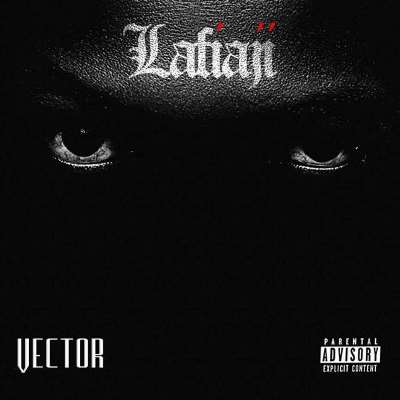Vector Lafiaji Album Review
2016 will be remembered as the year of the homecoming album – Ice prince paid homage to the Tin City he calls home on Jos 2 the World, Bez let the world know that Karu was where his Gbagyi heart was on his second studio effort, Gbagyi Child, and Vector made us put our L’s up for Lafíají in honor of the place where he grew up.
On his previous projects, V.E.C generally avoided getting too personal, much of what we know about the MC is centered around the barracks where he grew up. Lafíají increases the circumference of that conversation – beyond the confines of King George the 5 Road – and farther into Lagos, that way we get to know his other influences.
Lagos beaches are dotted with more white garment prayer cells than grains of sand, so it makes sense that the album’s intro would begin with a popular white garment worship song. The album’s title track is distinctly island-inspired as well, Vector works with the versatile Masterkraft to produce a memorable juju-hip-hop hybrid where he eulogies the Oba and Governor of Lagos state, bigs up other prominent areas around the island and even mentions Reminisce’s Ojota axis on the mainland.
If the state government was ever looking for an anthem for its music festivals – that bridged youth culture and indigenous sounds – they’ve found one. The fact that Vector made the record with the help of his elder sister Sola Vibrate makes “Lafíají”, the track, even more special. “Island”, a hip-hop posse cut featuring Obadice and Legely, paints a picture of the side of the island that the Oba and the government would rather visitors didn’t see. It’s the most lyric-driven record on Lafíají but Vector didn’t bother sending in a verse, which is indicative of his state of mind on a lot of the songs on this project.
Perhaps in an attempt to paint a picture of island nightlife, Vector approaches some records on Lafíají like he was performing as a lead singer of a live band at a garden. The band is a cheerful highlife collective (“Beer Parlor Music”) one time, while at another time, it’s an incomplete reggae ensemble (“Amazing”). Vector becomes an almost unrecognizable motivational singer when he gets into this mode. On “Fish Jaey’o”, a song inspired by juju music pioneer Prince Adekunle, he praises the virtues of hard work, while on “Adurah” he prays down success in all his affairs. In this way, Lafíají is experimental and bold, the album merges ancient and modern, indigenous and contemporary, old school and new school.
Over the years, it’s been fascinating to see the growth in Vector’s musicianship, from a Jay-Z soundalike to a rapper who uses rhythm more than he does rhymes, and danceable melody rather than rap lines that listeners can commit to memory. In addition to singing more, Vector gets his hands dirty on the boards on Lafíají more than on any of his previous 2 albums, the project was largely produced by G.R.A.P Music’s LiciousCrackitt and the rapper himself. Vector has grown appreciably as a producer but having said that, he is still quite raw.
The clattering sounds on the rock-centric “TDB” create an energy so scattered that even Vector struggled to keep up, while amateurish piano riff are made to loop indefinitely on “All I Have” as the usually lewd and playful MC enters socially-conscious mode. The difference between songs like those and a song like “Gee Boyz” – where Masterkraft combined local percussions and the Super Mario theme song with the skill level of a genius – is polish. That polish may come with time, for both LiciousCrackitt and Vector, but as at right now and as indicated by a staggering 25 tracks on the album, the focus was on quantity and not on the quality.
Lafíají spans roughly 80 minutes, almost as long as a football match. Sadly, Vector doesn’t always do a good job of creating moments that make the project worth talking about after the final whistle. If you think my football analogy is pretty weak, maybe you’d like Vector’s – he has developed a penchant for the odd football reference. Everything he raps about, including football, is said either so matter-of-factly,
I know I used to play before like Ifeanyi Udeze
But I’m retired now, best before this date
(Amazing)
Or just for the sake of rhyming or trying too hard to deliver a punchline (“Blaze and Booze” skit) –
As you see me so, I dey booze on
I dey catch shoot, oshe Buffon
But they say when alcohol becomes your doom
Na there Buffon go turn buffoon
Face palm.
One eternally frustrating thing about Vector is that he is clearly a competent wordsmith, some would argue even a very good one, but between unsuccessful attempts at humor and a decision to go for the most obvious rhyme every blessed time, he comes up with shockingly poor punchlines that distract from whatever the song he’s on is all about and in this case, what the hugely important album was about too.


